第28章 CHAPTER VIII "The Outlying Pickets of the New Worl
Our friends at home may well rejoice with us, for we are at our goal, and up to a point, at least, we have shown that the statement of Professor Challenger can be verified. We have not, it is true, ascended the plateau, but it lies before us, and even Professor Summerlee is in a more chastened mood. Not that he will for an instant admit that his rival could be right, but he is less persistent in his incessant objections, and has sunk for the most part into an observant silence. I must hark back, however, and continue my narrative from where I dropped it.
We are sending home one of our local Indians who is injured, and I am committing this letter to his charge, with considerable doubts in my mind as to whether it will ever come to hand.
When I wrote last we were about to leave the Indian village where we had been deposited by the Esmeralda. I have to begin my report by bad news, for the first serious personal trouble (I pass over the incessant bickerings between the Professors)occurred this evening, and might have had a tragic ending.
I have spoken of our English-speaking half-breed, Gomez--a fine worker and a willing fellow, but afflicted, I fancy, with the vice of curiosity, which is common enough among such men. On the last evening he seems to have hid himself near the hut in which we were discussing our plans, and, being observed by our huge negro Zambo, who is as faithful as a dog and has the hatred which all his race bear to the half-breeds, he was dragged out and carried into our presence. Gomez whipped out his knife, however, and but for the huge strength of his captor, which enabled him to disarm him with one hand, he would certainly have stabbed him.
The matter has ended in reprimands, the opponents have been compelled to shake hands, and there is every hope that all will be well. As to the feuds of the two learned men, they are continuous and bitter. It must be admitted that Challenger is provocative in the last degree, but Summerlee has an acid tongue, which makes matters worse. Last night Challenger said that he never cared to walk on the Thames Embankment and look up the river, as it was always sad to see one's own eventual goal. He is convinced, of course, that he is destined for Westminster Abbey.
Summerlee rejoined, however, with a sour smile, by saying that he understood that Millbank Prison had been pulled down.
Challenger's conceit is too colossal to allow him to be really annoyed. He only smiled in his beard and repeated "Really! Really!" in the pitying tone one would use to a child.
Indeed, they are children both--the one wizened and cantankerous, the other formidable and overbearing, yet each with a brain which has put him in the front rank of his scientific age. Brain, character, soul--only as one sees more of life does one understand how distinct is each.
The very next day we did actually make our start upon this remarkable expedition. We found that all our possessions fitted very easily into the two canoes, and we divided our personnel, six in each, taking the obvious precaution in the interests of peace of putting one Professor into each canoe. Personally, Iwas with Challenger, who was in a beatific humor, moving about as one in a silent ecstasy and beaming benevolence from every feature.
I have had some experience of him in other moods, however, and shall be the less surprised when the thunderstorms suddenly come up amidst the sunshine. If it is impossible to be at your ease, it is equally impossible to be dull in his company, for one is always in a state of half-tremulous doubt as to what sudden turn his formidable temper may take.
For two days we made our way up a good-sized river some hundreds of yards broad, and dark in color, but transparent, so that one could usually see the bottom. The affluents of the Amazon are, half of them, of this nature, while the other half are whitish and opaque, the difference depending upon the class of country through which they have flowed. The dark indicate vegetable decay, while the others point to clayey soil. Twice we came across rapids, and in each case made a portage of half a mile or so to avoid them. The woods on either side were primeval, which are more easily penetrated than woods of the second growth, and we had no great difficulty in carrying our canoes through them.